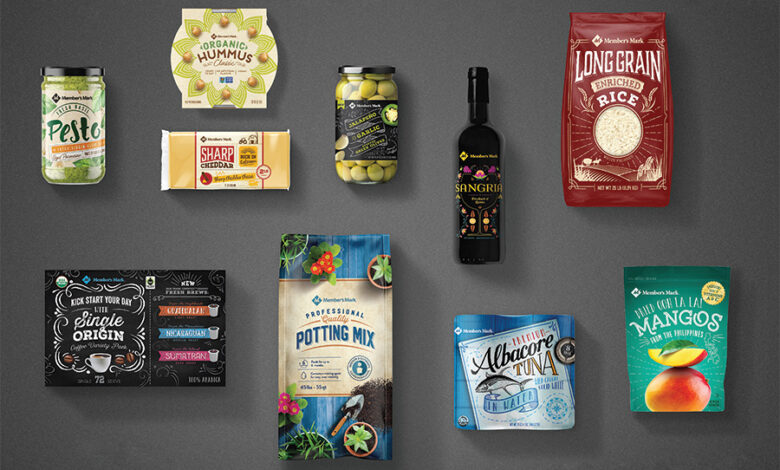The Evolution of Cosmetics Manufacturers: Innovation, Quality, and Private Labeling

The beauty and skincare industry has witnessed remarkable growth in recent years, driven by consumer demand for high-quality, effective, and innovative products. Cosmetics manufacturers play a crucial role in shaping this dynamic industry, offering services ranging from private labeling to research and development of ground breaking formulations. Companies like zicail.com have revolutionized the market by providing tailored solutions for brands looking to establish their presence in the competitive beauty space.
In this article, we explore the key aspects of cosmetics manufacturing, including private labeling, product innovation, and quality assurance, shedding light on how these factors influence the global beauty and skincare sector.
The Rise of Private Labeling in Cosmetics
What Is Private Labeling?
Private labeling allows businesses to sell cosmetics and skincare products under their own brand name while outsourcing the manufacturing process to third-party producers. This approach enables entrepreneurs, retailers, and beauty influencers to enter the market without investing in costly production facilities.
Why Private Labeling Is Gaining Popularity
- Cost-Effectiveness – Private labeling eliminates the need for research and development (R&D) expenses, allowing brands to focus on marketing and branding.
- Customization Options – Many manufacturers provide extensive customization options, including ingredient selection, packaging design, and scent variations.
- Speed to Market – Working with established manufacturers accelerates product launches, enabling brands to capitalize on emerging beauty trends.
- Regulatory Compliance – Cosmetics manufacturers ensure that all formulations meet industry regulations, reducing the burden of compliance for businesses.
Private Labeling vs. Contract Manufacturing
While private labeling offers pre-formulated products with branding flexibility, contract manufacturing provides brands with full control over formulations. Companies seeking exclusive, unique products often opt for contract manufacturing to create proprietary blends.
Innovation in Cosmetics Manufacturing
The Role of R&D in Skincare and Beauty
The beauty industry thrives on continuous innovation, with cosmetics manufacturers investing heavily in R&D to develop cutting-edge formulations. Advances in biotechnology, natural ingredient sourcing, and sustainable packaging are shaping the future of skincare.
Trends Driving Product Innovation
- Clean Beauty Movement – Consumers are increasingly seeking products free from harmful chemicals like parabens, sulfates, and artificial fragrances. Manufacturers are responding by formulating organic and natural alternatives.
- Personalized Skincare – Advances in AI-driven skin analysis and customizable formulations enable brands to offer personalized skincare solutions tailored to individual skin types.
- Sustainable Packaging – Eco-friendly packaging made from biodegradable and recyclable materials is gaining traction, reducing the environmental footprint of beauty products.
- Multifunctional Cosmetics – Products that combine skincare benefits with makeup functionality (e.g., BB creams, tinted sunscreens) are growing in popularity.
- Biotechnology and Lab-Grown Ingredients – Innovations such as plant stem cells and fermented skincare ingredients enhance product efficacy and sustainability.
The Impact of Technology on Product Development
With AI, 3D printing, and automated production processes, cosmetics manufacturers can rapidly prototype new products and refine formulations based on consumer feedback. This accelerates innovation cycles and ensures brands remain competitive.
Quality Assurance in Cosmetics Manufacturing
Why Quality Assurance Matters
Quality assurance (QA) is a cornerstone of cosmetics manufacturing, ensuring that products meet safety, efficacy, and regulatory standards. A robust QA process protects consumers from harmful ingredients and enhances brand credibility.
Key Elements of Quality Assurance
- Ingredient Sourcing and Testing – Manufacturers source raw materials from trusted suppliers and conduct rigorous testing to ensure purity and potency.
- Good Manufacturing Practices (GMP) – Compliance with GMP standards guarantees consistency, hygiene, and product integrity throughout the production process.
- Microbial and Stability Testing – Stability tests assess product shelf life, while microbial testing ensures formulations remain free from contamination.
- Compliance with Global Regulations – Depending on the market, cosmetics must meet regulatory standards set by the FDA (U.S.), EU Cosmetic Regulation, and other governing bodies.
- Batch Testing and Traceability – Regular batch testing allows manufacturers to track production issues and maintain product consistency.
Certifications That Enhance Credibility
Many cosmetics manufacturers pursue certifications to demonstrate their commitment to quality and ethical production. Some key certifications include:
- ISO 22716 (GMP for Cosmetics) – Ensures compliance with international manufacturing standards.
- Leaping Bunny & PETA Certification – Confirms cruelty-free production practices.
- COSMOS & Ecocert – Validates organic and natural formulations.
- Dermatologically Tested – Indicates products have been tested for skin compatibility.
The Future of Cosmetics Manufacturing
As consumer preferences continue to evolve, cosmetics manufacturers must adapt by embracing sustainable practices, leveraging advanced technology, and maintaining high-quality standards. The rise of clean beauty, personalized skincare, and ethical sourcing will define the next era of beauty innovation.
For brands looking to enter or expand in the beauty industry, partnering with an experienced cosmetics manufacturer is key to success. Whether through private labeling, innovative formulations, or stringent quality control, manufacturers serve as the backbone of the thriving skincare and beauty market.



